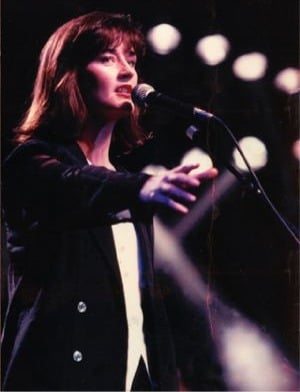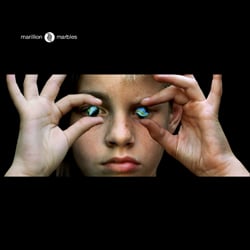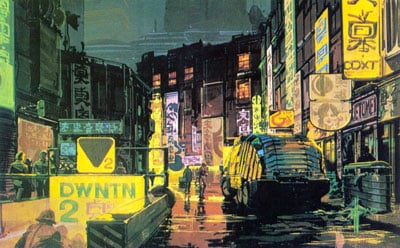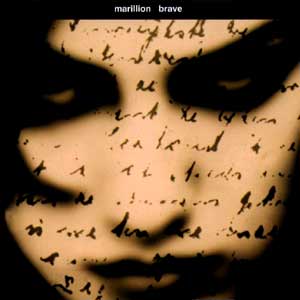| Author |
 Topic Search Topic Search  Topic Options Topic Options
|
Astral Traveller 
Forum Senior Member


Joined: September 21 2012
Location: Sunhillow
Status: Offline
Points: 116
|
 Posted: January 17 2013 at 17:53 Posted: January 17 2013 at 17:53 |
|
^ Canterbury Scene is typically attributed to bands formed in Canterbury in the late 1960s or bands that are in some way related to the Wilde Flowers.
Edited by Astral Traveller - January 17 2013 at 17:55
|

A mistake is always forgivable, rarely excusable and always unacceptable. -Robert Fripp
|
 |
Dean 
Special Collaborator


Retired Admin and Amateur Layabout
Joined: May 13 2007
Location: Europe
Status: Offline
Points: 37575
|
 Posted: January 17 2013 at 17:11 Posted: January 17 2013 at 17:11 |
Steve is correct - Canterbury is not a subgenre, it is a "scene" - there was no distinct style of music associated with it, it was a loose association of bands at best.
|
|
What?
|
 |
lucas 
Special Collaborator


Honorary Collaborator
Joined: February 06 2004
Location: France
Status: Offline
Points: 8138
|
 Posted: January 17 2013 at 15:12 Posted: January 17 2013 at 15:12 |
|
^
I am pretty sure Happy The Man, despite coming from the USA, is also a band belonging to the Canterbury subgenre.
|
|
"Magma was the very first gothic rock band" (Didier Lockwood)
|
 |
lazland 
Prog Reviewer


Joined: October 28 2008
Location: Wales
Status: Offline
Points: 13924
|
 Posted: January 17 2013 at 14:59 Posted: January 17 2013 at 14:59 |
 someone_else wrote: someone_else wrote:
 Gerinski wrote: Gerinski wrote:
 someone_else wrote: someone_else wrote:
Why shouldn't we call it New Wave of British Progressive Rock (NWoBPR)? Many of those bands who started the genre labeled as "Neo-Progressive" nowadays (Marillion, Pallas, IQ, Twelfth Night, Pendragon etc.) are UK-based and started c. 1983. |
I disagree. Even if it originated in the UK, Neo has clearly distinctive musical features and there are clear Neo bands from other countries, France, Spain, Germany... it's the style and sound what matters. |
I agree with you about the distinctive style and sound, but it is the same as with Canterbury Scene (I'm quite sure you know that Canterbury is situated in the southeast of England), a subgenre in which Picchio dal Pozzo, Cos and Supersister are included, and some more.
|
The Canterbury Scene referred to a specific set of artists who emanated from, erm, Canterbury at that time, and was, actually, referred to as such at the time.
That sub-genre should not have accepted any new bands since circa 1976, for the simple reason that no new bands from Canterbury with that particular mindset have started since then. Any Canterbury "copyists", or influenced bands would, surely, belong in Neo? Certainly so, given that we do not accept neo as being a wholly symphonic sub-genre?
|
|
Enhance your life. Get down to www.lazland.org
Now also broadcasting on www.progzilla.com Every Saturday, 4.00 p.m. UK time!
|
 |
octopus-4 
Special Collaborator


RIO/Avant & Zeuhl, Neo, Post/Math, PSIKE
Joined: October 31 2006
Location: Italy
Status: Offline
Points: 15008
|
 Posted: January 17 2013 at 14:52 Posted: January 17 2013 at 14:52 |
|
I think the neo-prog label applies only to Marillion with Fish. Who tried to make some prog neo or not during the 80s is quite a hero. Personally, at the end of the 80s I was buying mainly newage...
|
|
I stand with Roger Waters, I stand with Joan Baez, I stand with Victor Jara, I stand with Woody Guthrie. Music is revolution
|
 |
someone_else 
Forum Senior Member


VIP Member
Joined: May 02 2008
Location: Going Bananas
Status: Offline
Points: 24906
|
 Posted: January 17 2013 at 14:43 Posted: January 17 2013 at 14:43 |
 Gerinski wrote: Gerinski wrote:
 someone_else wrote: someone_else wrote:
Why shouldn't we call it New Wave of British Progressive Rock (NWoBPR)? Many of those bands who started the genre labeled as "Neo-Progressive" nowadays (Marillion, Pallas, IQ, Twelfth Night, Pendragon etc.) are UK-based and started c. 1983. |
I disagree. Even if it originated in the UK, Neo has clearly distinctive musical features and there are clear Neo bands from other countries, France, Spain, Germany... it's the style and sound what matters. |
I agree with you about the distinctive style and sound, but it is the same as with Canterbury Scene (I'm quite sure you know that Canterbury is situated in the southeast of England), a subgenre in which Picchio dal Pozzo, Cos and Supersister are included, and some more.
Edited by someone_else - January 17 2013 at 14:43
|
|
|
 |
lazland 
Prog Reviewer


Joined: October 28 2008
Location: Wales
Status: Offline
Points: 13924
|
 Posted: January 17 2013 at 14:34 Posted: January 17 2013 at 14:34 |
 M27Barney wrote: M27Barney wrote:
I have always considered IQ as Phase II Symphonic Progressive Rock, then you get Flower Kings - Phase III Symphonic progressive Rock - soon we'll be in Phase IV............ |
Yep, absolutely. The "neo" movement was, in fact, the second wave of prog. TFK are the best known of the third wave, which differed from the previous two, in that it was predominantly outside of the UK.
I am looking forward to phase four. It will be different. It will be challenging. It will be exciting. And, of course, because it will not be "classic" symphonic prog, we will have to invent a whole new sub-genre to fit them in. Silly.
And, yes, in writing this, I am aware that TFK and Spock's Beard are accepted here as symph.
|
|
Enhance your life. Get down to www.lazland.org
Now also broadcasting on www.progzilla.com Every Saturday, 4.00 p.m. UK time!
|
 |
M27Barney 
Forum Senior Member


Joined: November 09 2006
Location: Swinton M27
Status: Offline
Points: 3136
|
 Posted: January 17 2013 at 14:24 Posted: January 17 2013 at 14:24 |
I have always considered IQ as Phase II Symphonic Progressive Rock, then you get Flower Kings - Phase III Symphonic progressive Rock - soon we'll be in Phase IV............
|
 |
lazland 
Prog Reviewer


Joined: October 28 2008
Location: Wales
Status: Offline
Points: 13924
|
 Posted: January 17 2013 at 14:01 Posted: January 17 2013 at 14:01 |
 Dean wrote: Dean wrote:
All genre names are made-up by someone, very rarely by the bands themselves and often a long time after the style first came to light. Crossover Prog does not exist, we made it up, same for Eclectic Prog, we made that up too. According to Orford Neo Prog was coined sometime in the early 90s (and I agree with him), if it was ever known as NWoBPR then my guess is that was only in Sounds (or perhaps Kerrang!!), BUT Neo Prog is the name by which it is known - changing it would be revisionist, it would not be helpful.
Neo Prog is a noun, it no longer has a literal meaning and that's okay, we do that all the time: Neoclassicism began in the 18th Century - it's not new any more; the Neolithic era ended 4000 years ago - no one is complaining that the name should be changed because it's not new any more.
Changing the name will not remove the pejorative connotation nor will it change any associations within the subgenre. |
And I will disagree with you, a rare instance. Changing it, or naming it neo, in the first place was revisionist. Changing it back would be corrective.
I intend over the weekend to round up the comments I made in the debate started on the Improve The Site thread re sub-genres, so it is possibly best if I left it there, except to say that I first heard of Marillion via Sounds, and went to see them at The Marquee on the back of the article, which described them as a Genesis and post punk influenced band. Not a neo band, as you rightly say.
|
|
Enhance your life. Get down to www.lazland.org
Now also broadcasting on www.progzilla.com Every Saturday, 4.00 p.m. UK time!
|
 |
Astral Traveller 
Forum Senior Member


Joined: September 21 2012
Location: Sunhillow
Status: Offline
Points: 116
|
 Posted: January 17 2013 at 11:06 Posted: January 17 2013 at 11:06 |
 jude111 wrote: jude111 wrote:
 lucas wrote: lucas wrote:
As you may know, Martin Orford of IQ is very unhappy of the tag allocated to the music he plays with IQ or Jadis, and in general to the prog rock scene that arose in the early eighties. He would prefer his music to be labeled "New Wave of Progressive Rock" as he feels offended when the press qualified the bands of the late nineties as "genuine" progressive rock (beacause of the use of vintage keyboards) as opposed to the "neo" progressive rock scene (due to the use of modern keyboards or electronic drums).
|
Neo- doesn't mean "not genuine"; that's a common misunderstanding.
From onelook.com: Neo- means: "A prefix meaning new, recent, late." From Oxford: "1. New. 2. A new or revived form."
In film, think of Italian Neo-realism, or the French New Wave. Today there's nothing "new" about the films of, say, Rossellini or Godard. But the tag stuck, denoting a historical period, as well as a kind of genre (i.e. not all post-war Italian films are considered Neorealist; not all 60s French films are considered a part of the Nouvelle vague).
So I say, keep the Neo-Prog label. :-)
|
and
 Gerinski wrote: Gerinski wrote:
Seeing your avatar, is this really your other car? you lucky b*t 
|
No, its a '78 Corvette that contains Close to the Edge, Fragile, Selling England, Meddle, Low Spark, The Yes Album, and Thick As A Brick 8 track tapes. Even though I have not convinced my Father to let me drive it, I have stocked it with my own personal music collection.
|

A mistake is always forgivable, rarely excusable and always unacceptable. -Robert Fripp
|
 |
Catcher10 
Forum Senior Member


VIP Member
Joined: December 23 2009
Location: Emerald City
Status: Offline
Points: 18084
|
 Posted: January 17 2013 at 10:55 Posted: January 17 2013 at 10:55 |
|
I now really have no idea what NEO means......not that it matters.
|
|
|
 |
rogerthat 
Prog Reviewer

Joined: September 03 2006
Location: .
Status: Offline
Points: 9869
|
 Posted: January 17 2013 at 10:50 Posted: January 17 2013 at 10:50 |
|
New Wave of British Prog Rock is an interesting suggestion because 80s neo prog albums do have shades of NWOBHM here and there. Think Garden Party, the beat especially would be suitable for an Iron Maiden track. It is unfortunate that neo prog is often used in a derogatory sense because most second generation prog rock bands are derivative in any case. At least, neo prog in its early days, like Canterbury, had a distinct sound and character and in that sense, continued to move prog to some place where it hadn't gotten to. It may have since come to represent some formal preferences but the 80s bands did have a very British flavour.
Edited by rogerthat - January 17 2013 at 10:51
|
 |
Gerinski 
Prog Reviewer


Joined: February 10 2010
Location: Barcelona Spain
Status: Offline
Points: 5160
|
 Posted: January 17 2013 at 10:41 Posted: January 17 2013 at 10:41 |
 Astral Traveller wrote: Astral Traveller wrote:
|
Seeing your avatar, is this really your other car? you lucky b*t 
|
 |
jude111 
Forum Senior Member


Joined: October 20 2009
Location: Not Here
Status: Offline
Points: 1754
|
 Posted: January 17 2013 at 10:08 Posted: January 17 2013 at 10:08 |
 lucas wrote: lucas wrote:
As you may know, Martin Orford of IQ is very unhappy of the tag allocated to the music he plays with IQ or Jadis, and in general to the prog rock scene that arose in the early eighties. He would prefer his music to be labeled "New Wave of Progressive Rock" as he feels offended when the press qualified the bands of the late nineties as "genuine" progressive rock (beacause of the use of vintage keyboards) as opposed to the "neo" progressive rock scene (due to the use of modern keyboards or electronic drums).
|
Neo- doesn't mean "not genuine"; that's a common misunderstanding. From onelook.com: Neo- means: "A prefix meaning new, recent, late." From Oxford: "1. New. 2. A new or revived form." In film, think of Italian Neo-realism, or the French New Wave. Today there's nothing "new" about the films of, say, Rossellini or Godard. But the tag stuck, denoting a historical period, as well as a kind of genre (i.e. not all post-war Italian films are considered Neorealist; not all 60s French films are considered a part of the Nouvelle vague). So I say, keep the Neo-Prog label. :-)
Edited by jude111 - January 17 2013 at 10:15
|
 |
Astral Traveller 
Forum Senior Member


Joined: September 21 2012
Location: Sunhillow
Status: Offline
Points: 116
|
 Posted: January 17 2013 at 10:05 Posted: January 17 2013 at 10:05 |
IQ used a drum machine for some of the more basic parts of Nomzano and Are You Sitting Comfortably? More on the latter since Paul Cook was sick during the recording of some of the tracks. Also I realize that 1975-1983 was the prog rock dark ages, but undoubtedly the neo-prog movement was heavily inspired by the symphonic prog of the early 70's.
|

A mistake is always forgivable, rarely excusable and always unacceptable. -Robert Fripp
|
 |
Dean 
Special Collaborator


Retired Admin and Amateur Layabout
Joined: May 13 2007
Location: Europe
Status: Offline
Points: 37575
|
 Posted: January 17 2013 at 08:59 Posted: January 17 2013 at 08:59 |
 Astral Traveller wrote: Astral Traveller wrote:
Neo-prog is a term used to describe the bands formed in the 1980's that piggybacked off the styles of the 1970's prog bands such as Yes, Genesis, Camel, and Pink Floyd.
The main distinction between neo-prog and classic prog was the more advanced technological advancements (namely the drum machine and the computer) and the subject matter. |
Wrong - they did not "piggyback" they "followed-on" - it was not a instantaneous change from one style to another it was a gradual process that began in 1977, what we used to call in the old days "a progression".
And what drum machine?
Mick Pointer? Andy Ward? Ian Mosley? Paul Cook? Mark Ridout? Scott Higham? Brian Deviol? Derek Forman? Colin Fraser? Steen Doosing? Paul Johnson?
...are these all pseudonyms for a Roland TR808?
|
|
What?
|
 |
Astral Traveller 
Forum Senior Member


Joined: September 21 2012
Location: Sunhillow
Status: Offline
Points: 116
|
 Posted: January 17 2013 at 08:44 Posted: January 17 2013 at 08:44 |
Neo-prog is a term used to describe the bands formed in the 1980's that piggybacked off the styles of the 1970's prog bands such as Yes, Genesis, Camel, and Pink Floyd. The main distinction between neo-prog and classic prog was the more advanced technological advancements (namely the drum machine and the computer) and the subject matter. Neo-prog contained western lyrics dealing with social situations while classic prog contained alot of fantasy and easter spirituality. Also, the songs were shorter and had more chart success than classic prog bands. This may be due to the fact that Neo-prog bands were not as adventurous as classic prog bands. Since they try to replicate what was already done it's like making a photocopy of a photocopy. Genesis, King Crimson, and Yes all formed in 1969. Pink Floyd while formed in 1967, was more psychedelic than progressive until Atom Heart Mother. Camel formed in '71. My point is that all these bands were original. They all worked at the same time, so they didn't really copy one another. Fish admits that he was heavily inspired by Genesis, The Moody Blues,Floyd, VDGG, and Yes. Same with Peter Nichols. They all worked from what was already done. That's why Martin doesn't like the Neo label. He feels that it is derogatory and denying his originality.
Edited by Astral Traveller - January 17 2013 at 08:45
|

A mistake is always forgivable, rarely excusable and always unacceptable. -Robert Fripp
|
 |
Gerinski 
Prog Reviewer


Joined: February 10 2010
Location: Barcelona Spain
Status: Offline
Points: 5160
|
 Posted: January 17 2013 at 08:39 Posted: January 17 2013 at 08:39 |
 someone_else wrote: someone_else wrote:
Why shouldn't we call it New Wave of British Progressive Rock (NWoBPR)? Many of those bands who started the genre labeled as "Neo-Progressive" nowadays (Marillion, Pallas, IQ, Twelfth Night, Pendragon etc.) are UK-based and started c. 1983. |
I disagree. Even if it originated in the UK, Neo has clearly distinctive musical features and there are clear Neo bands from other countries, France, Spain, Germany... it's the style and sound what matters.
|
 |
Warthur 
Prog Reviewer


Joined: January 06 2008
Location: London, UK
Status: Offline
Points: 617
|
 Posted: January 17 2013 at 08:21 Posted: January 17 2013 at 08:21 |
To be slightly fairer to Martin than my previous post: it's definitely true that for a while prog fans who liked to be a bit snobby about it did use "neo-prog" as a denigrating term.
At the same time, I honestly think that "retro prog" is used as such a term far more these days than neo is. I don't think it was in especially common circulation 6 years back, so Martin may have been somewhat more justified in his feelings when he wrote the article than he would be if he said the same thing today. Personally, I think rather than coining an alternate term I think neo bands would be better off celebrating it because for people who are fond of that style of prog it's a sing that they'll probably enjoy what you are doing and people who tend to diss neo will apply the label to you anyway whether you like it or not. It's not like it's a racial slur or something, it's a perfectly neutral term and whether it is a derogatory or a respectful phrase depends entirely on how people use it.
|
 |
Dean 
Special Collaborator


Retired Admin and Amateur Layabout
Joined: May 13 2007
Location: Europe
Status: Offline
Points: 37575
|
 Posted: January 17 2013 at 08:06 Posted: January 17 2013 at 08:06 |
All genre names are made-up by someone, very rarely by the bands themselves and often a long time after the style first came to light. Crossover Prog does not exist, we made it up, same for Eclectic Prog, we made that up too. According to Orford Neo Prog was coined sometime in the early 90s (and I agree with him), if it was ever known as NWoBPR then my guess is that was only in Sounds (or perhaps Kerrang!!), BUT Neo Prog is the name by which it is known - changing it would be revisionist, it would not be helpful.
Neo Prog is a noun, it no longer has a literal meaning and that's okay, we do that all the time: Neoclassicism began in the 18th Century - it's not new any more; the Neolithic era ended 4000 years ago - no one is complaining that the name should be changed because it's not new any more.
Changing the name will not remove the pejorative connotation nor will it change any associations within the subgenre.
|
|
What?
|
 |
/PAlogo_v2.gif)
/PAlogo_v2.gif)


